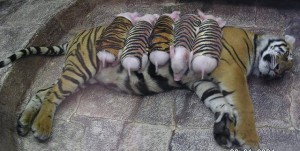 I encountered an error in E.O. Wilson’s The Social Conquest of Earth where the authors intended to assert an alternative to “kin selection” but instead repeated “multilevel selection,” which is precisely what the authors wanted to draw a distinction with. I am sympathetic, however, if for no other reason than I keep finding errors and issues with my own books and papers.
I encountered an error in E.O. Wilson’s The Social Conquest of Earth where the authors intended to assert an alternative to “kin selection” but instead repeated “multilevel selection,” which is precisely what the authors wanted to draw a distinction with. I am sympathetic, however, if for no other reason than I keep finding errors and issues with my own books and papers.
The critical technical discussion from Nature concerning the topic is available here. As technical discussion, the issues debated are fraught with details like how halictid bees appear to live socially, but are in fact solitary animals that co-exist in tunnel arrangements.
Despite the focus on “spring-loaded traits” as determiners for haplodiploid animals like bees and wasps, the problem of big-brained behavioral plasticity keeps coming up in Wilson’s book. Humanity is a pinnacle because of taming fire, because of the relative levels of energy available in animal flesh versus plant matter, and because of our ability to outrun prey over long distances (yes, our identity emerges from marathon running). But these are solutions that correlate with the rapid growth of our craniums.
So if behavioral plasticity is so very central to who we are, we are faced with an awfully complex problem in trying to simulate that behavior. We can expect that there must be phalanxes of genes involved in setting our developmental path (our nature and the substrate for our nurture). We should, indeed, expect that almost no cognitive capacity is governed by a small set of genes, and that all the relevant genes work in networks through polygeny, epistasis, and related effects (pleiotropy). And we can expect no easy answers as a result, except to assert that AI is exactly as hard as we should have expected, and progress will be inevitably slow in understanding the mind, the brain, and the way we interact.… Read the rest